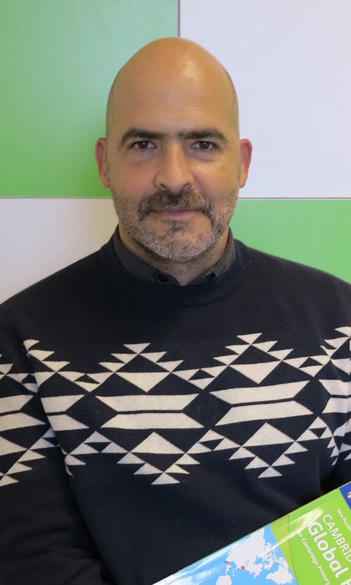"businesses ... need to have people who write better"

What is the overall aim of the course?
We would like to make sure participants become familiar with the main opportunities and challenges in business communication. These are both oral and written. Areas of oral communication are obviously job interviews, business meetings, and presentations, but will also entail some other situations (e.g. sales pitches). Written elements range from writing emails to reports and proposals – some of which have relatively fixed formats. We mustn’t forget though that there are so many opportunities, not just constraints.
What are those?
The World Wide Web and digital technology have opened so many doors for especially small businesses and entrepreneurs. While large corporations have always used billboards and prime-time adverts, start-ups these days can take advantage of YouTube, blogs, and a lot of other accessible forms. They can reach target groups directly and cost-effectively. Although it is somewhat controversial, we can’t ignore the impact and opportunities coming from AI. We hope to incorporate some of these new learning and writing tools ethically and with judgement.
Would these also be looked at in the course?
Yes. The course is going to include real life-like tasks, and students use online resources where they create actual presentations, video interviews, after we have looked at the main components of the course material.
What will be the structure of the course?
On the first day we look at communication styles and barriers to successful communication. On the second day we look at how meetings and negotiations are conducted, which includes some key terms of language. The end of the second day will launch some group work and introduce the framework for project work.
Day three will first look at emails, reports, and proposals – essential written communication – while the second half of that day the students start setting up individualised projects.
Day four will be group presentations of their project work, while on the last day we recap the main course components, give and receive feedback, and deal with anything outstanding.
That sounds like a busy week…
I think so. And the students will also be doing homework, revise the materials, think over some of the course’s takeaways in pairs or small groups. I would say, days 2-3 will be the hardest work, as that is when the bulk of the project work will have to be created.
Who do you think could take this course?
Anyone with a confident intermediate to advanced level of English, with an interest in training or background in business or the corporate world. However, it is not a general English course, where we look at grammar tenses or basic vocabulary. It will still be accessible for someone from around B2 level. Higher level speakers would hugely benefit too – the business topics and tasks are things all professionals need to master for a competitive business/corporate environment.
Why would students want to take this course?
Firstly, because it is going to cover the main components of communication in business life. Secondly, we look at points where communication can go wrong, especially due to cultural differences and expectations. Thirdly, because we hope to have participants from a range of backgrounds, they will be able to bounce ideas off one another and create some greatly excitingproject work! I think the course will be fun, exciting, but also intense!
Will there be a course book?
Yes, we will be using two textbooks: A Practical Book of Business Communication of BGMEA University and Business Communication: Process & Product by Guffy and Loewy, which is a great introduction and overview of the key areas with a lot of case studies and real-life examples. Students won’t have to buy it though… We only use highlights.
Can you tell us a bit more about the projects?
Definitely. We want to make sure the projects are as close to real life as possible, and that they include international / intercultural scenarios, as we expect the participants to come from and aim for such environments. One project will be reaching out to and building a network of future professional partners in Europe working from the basis of a trade fair. For the other one, students role-play an ambitious trade partnership between dynamic firms from Egypt and Turkey, and contact potential suppliers of oriental rugs further east. Both should be fun, and will offer numerous possibilities for role-play, video-interviews, presentations, memos, and written preparation.
Any final message to applicants?
It is a good idea to get their existing English skills refreshed. I also recommend being generally open-minded about available training materials (books or digital media) and taking in new ideas whether they are from the fields of psychology, culture or recent communication tools. This last element will actually come in useful as skills in sound and video recording, presentation technology goes hand-in-hand with in-person communication skills.
Thank you.
Miklós Földes is a free-lance teacher and academic tutor with a Master’s degree, originally from the Faculty of Arts, at Eötvös Loránd University in Budapest. He has been a Business English teacher since 2006, and a foreign language assessor since 2000. Since 2019 he has been an academic tutor at the Language Centre at the University of Oxford and has taught at Hungary’s two prestigious universities: IBS and ELTE. He worked as Academic Manager at Oxford Summer Courses and has been an academic mentor and module leader at Budapest’s Milestone Institute since 2023. Between 2008 and 2017 he lived and taught in the United Kingdom.

